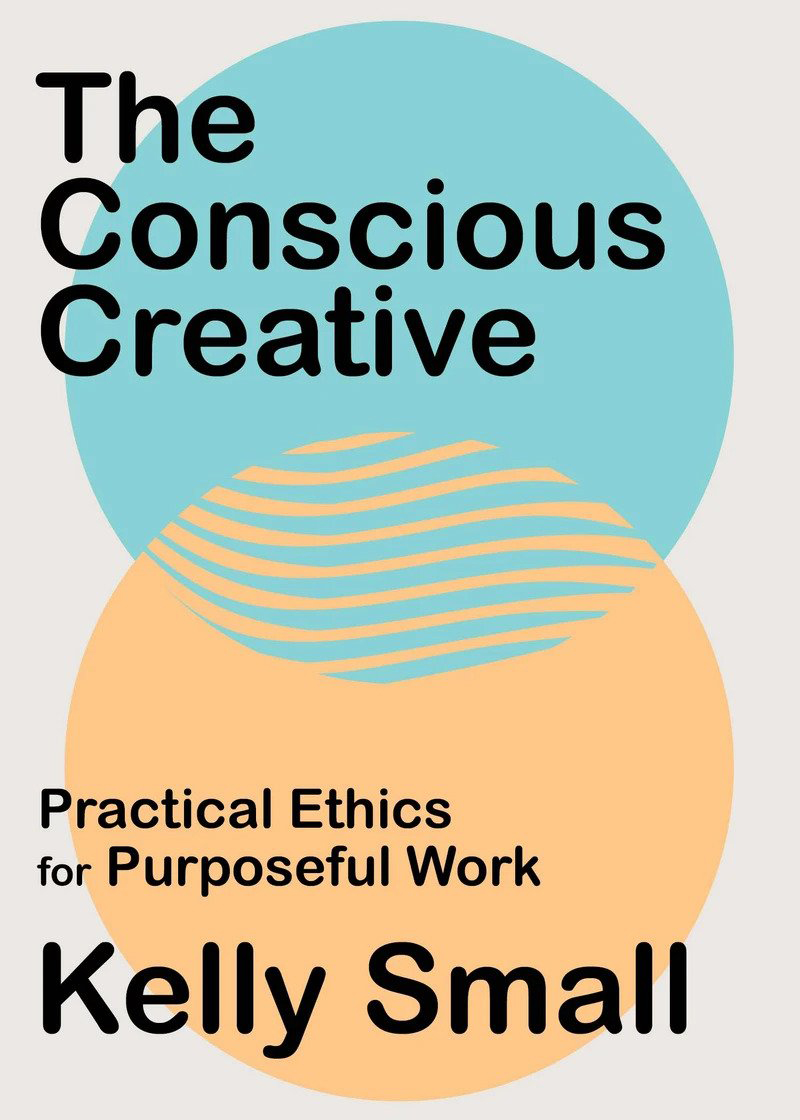The Conscious Creative: Practical Ethics for Purposeful Work by Kelly Small is a non-fiction debut novel, releasing in August 2020, that “aims to clarify the complicated business of achieving an ethical practice in the creative industries, or, in other words, becoming a more conscious creative.” After its introduction, the novel is divided into four core components of personal, economic, social, and environmental strategies to develop a rounded, ethical creative practice.
Small’s experience as a former creative director provides valuable insight into the corporate landscape, but it also brings assurance that they understand the difficulties a creative will face navigating the corporate world. After quitting their position because of an ethical mid-life crisis, Small researched how they could develop an ethical, but sustainable, practice in their creative endeavours. They drew inspiration from the practice of ikigai, a Japanese philosophy that equates to “reason to be,” and which poses questions for consideration like “What can you be paid for?” and “What does the world need?” These are paramount ideas to consider as both a working member of society and a citizen of the world, and they’re concepts that shaped Small’s core values.
The novel’s structure is styled in a way to ensure its accessibility: the passage in which Small lists the four core components for reaching ethical harmony begins with the easiest changes to implement and ends with the more ambitious efforts needed in order to round out the creative’s personal ethics. While the language can teeter on the side of jargon, Small takes pause to define unfamiliar terminology in layman’s terms. Each developmental step receives its own dedicated page that helps the novel to feel more like a reference tool and less like a textbook. It also makes for a quick-paced reading.
The first part, personal enhancement, is structured around the developing self — creating awareness of global issues, developing inclusive language, and challenging our biases are just a few of the subjects the author breaks down. Given that protests are sweeping across the Western world, Small’s passages on privilege, global responsibility, and knowing when to listen raise consideration on the current gap that exists between consumers and corporations when these concepts are disregarded.
For example, corporate, performative activism in order to reflect positively in the public’s eyes is a critical discussion happening on social media against the backdrop of Black Lives Matter. It occurs when companies display black profile pictures, send out copy-and-paste pro-black emails, and post PR statements in solidarity, only to disregard black consumer feedback, hire predominantly white staff,
and return to business as usual without implementing any lasting, ethical changes.
While the intended audience for this novel is professional creatives, Small’s thorough breakdown of ethical concerns in the workplace can benefit anyone wanting to grow as an ally in a nation rife with issues of disparity. Small shares anecdotes of their own guilt for their at-times unethical past but offers assurance that conscious development is key. In their concluding mission statement, Small asks their readers “to use our careers and our talents to incrementally improve the world where we can.”


